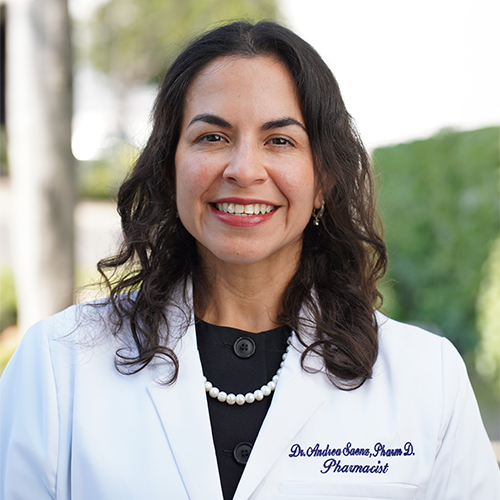
We’ve previously discussed biological age and chronological age in relation to your grip strength. Besides grip strength, there are other markers associated with your biological age and by managing them, it may be possible to reverse your biological age. So let’s go over what biological age is, how it’s measured and what you can do to reverse it.
What is Biological Age?
There are two types of age, chronological and biological. Your chronological age is simply the number of years since you’ve been born. Your biological age, on the other hand, is how old your cells and tissues are based on two key measures; telomeres and DNA methylation. So how are these two things related?
How Can You Find Out Your Biological Age?
Steve Horvath, a pioneer of biological age measurement, developed a test called the GrimAge Clock, which is claimed by Horvath to be the best morality predictor. GrimAge measures chemical changes on 1,030 different letters of our DNA, to measure the progress and speed of our aging.
GrimAge, as with other branded tests, follows the epigenetic clock theory of aging. This theory uses DNA methylation and its effects on tissues as a primary factor to measure biological age.
Can You Reduce or Reverse Your Biological Age?
The American Heart Association has dubbed a list of behaviors as “Life’s Essential 8” and Columbia researchers found those who followed these guidelines slowed their rate of biological aging significantly.
Data from the 6500 adults in the aforementioned study showed that those who practiced all 8 behaviors on the list had a gap of up to 5 years between their biological and chronological age. As you might gather from the content of the Essential 8, the overall takeaway of the study is that better heart health slows biological aging.
“We found that higher cardiovascular health is associated with decelerated biological aging, as measured by phenotypic age. We also found a dose-dependent association – as heart health goes up, biological aging goes down,” said study senior author Nour Makarem, Ph.D.
Essential 8 Guidelines from the American Heart Association
Eat a Healthy Diet

Aim for a diet with a variety of healthy proteins, fruits, vegetables, and whole grains. Avoid highly-processed and ultra-processed foods, tropical plant oils like palm oil, and added sugars. Many medical professionals worldwide recommend the mediterranean diet for its adherence to these guidelines since it reduces the risk of cardiovascular disease.
The Mediterranean diet emphasizes eating lentils, beans and nuts in addition to whole grains, fruits and vegetables, healthy fats (from fish, olive oil and avocados), cheese and greek yogurt (in moderation), and healthy lean proteins that limits red meats to a minimum. This diet does not contain sweets, baked goods, or sugary beverages since these foods are considered inflammatory due to the high content of processed ingredients, sugars, and hydrogenated fats.
Be More Active
Many people don’t achieve the CDC’s recommended 150 minutes of moderate to vigorous physical activity a week. If you aren't achieving this amount of activity yourself, try to ramp up to it slowly while thinking more about it as 30 minutes of activity 5 days a week.
Two days a week should be focused on moderate to high-intensity muscle strengthening activities, such as weight lifting or resistance training. It is important to keep in mind that exercise not only promotes cardiovascular health, but also good sleep, lowers anxiety and depression, controls weight, improves mood, and overall healthy living.
Quit or Avoid Tobacco Use
Smoking HEAVILY accelerates aging and is the most preventable cause of premature death in the U.S. Smoking causes cancer, heart disease, stroke, lung diseases, and diabetes. According to the CDC, smokers are at higher risk of developing lung cancer, stroke, and heart disease. And it increases risk for tuberculosis, certain eye diseases, and autoimmune conditions. All of this information demonstrates that smoking damages nearly every part of the body. One of the easiest things any smoker can do for their life and health is to STOP.
Get a Healthy Amount of Sleep

Most adults should aim for 7-9 hours of sleep per night. Falling short of this amount over the long run puts you at risk for heart disease, stroke, obesity, depression, and decreased immune function.
Getting better sleep sets you up for better health and you’ll feel and function better in your daily life. More specifically, getting great sleep can help with memory retention, creativity, and maintaining a healthy mood. This is because during the sleep cycle your brain and all other body functions are resting and repairing themselves. This is why good rest and sleep is always encouraged when we are facing an acute illness or ailment.
Manage Your Weight
The American Heart Association suggests aiming for a BMI of 25 to for optimal health. For reference 18.5 and lower is considered underweight and 30 or above is considered obese. Therefore, a BMI that is considered healthy is between 18.5 and 24.9 which is simply calculated by dividing weight in kilograms (kg) by height in meters (m) squared or by using the CDC BMI calculator.
Maintaining a healthy weight requires a healthy diet and exercise which will help keep biomarkers like blood pressure, cholesterol and blood sugar in the healthy range. On the other hand, being obese accelerates biological aging by straining your heart, bones, joints and other tissues while pushing all biomarkers into worse territory.
Control Cholesterol Levels
It’s difficult to know where your cholesterol levels lie without having a lipid panel since high levels generally don’t present any symptoms. But without monitoring, high and unchecked cholesterol levels put individuals at greater risk of heart attack or stroke.
According to the Mayo Clinic, healthy individuals with no underlying conditions should aim for LDL, “bad” cholesterol levels from 100 - 129 mg/dl (milligrams per deciliter). People at risk of heart disease want to stay under 100 mg/dl and those who have already had incidents such as a heart attack will want to stay under 70 mg/dl. Interestingly, following the mediterranean diet helps lower cholesterol, and a number of supplements such as VigorHeart, Omega-3 fish oils, Red Yeast Rice and Plant Sterols/Stanols may also help lower LDL levels.
Manage Blood Sugar

The body uses glucose/sugar from the food we eat for energy production. But excessive blood sugar levels over time can be damaging to your heart, kidneys, eyes and nerves.
According to the CDC, the healthy range for fasting blood sugar is below 100 mg/dL, while 100 to 125 mg/dL indicates an increased risk for developing Type 2 diabetes. Besides reading the nutrition labels, also be aware of other names under which sugar goes. Additionally, consider hidden sugars in condiments, soups, pasta sauces and other packaged foods.
Manage Blood Pressure
High blood pressure levels are often a first (measurable) sign of trouble. Clots, plaques, cholesterol and other troubles make it harder for blood to circulate, raising blood pressure levels.
The AHA recommends aiming for Levels less than 120/80 mm Hg while high blood pressure is defined as 130-139 mm Hg systolic pressure (the top number in a reading) or 80-89 mm Hg diastolic pressure (bottom number).
BONUS TIP: Manage Your Stress Levels

Psychological stress triggers the release of stress hormones such as cortisol and adrenaline, which can cause inflammation and damage to DNA and cells over time. Chronic, long-term stress can also lead to oxidative stress.
Put simply, stress accelerates your body’s aging process. Consequently, addressing your biological age and overall health will require you to address your sources of stress. Then, find ways to get them under control.
Bottom Line
The idea of biological age is basically a score based on a combination of health markers that sees where you stand relative to others your age. Living a healthy lifestyle using Life's Essential 8 as well as managing your stress levels can help maintain better health and maybe even reduce your biological age. Many markers cited in the Essential 8 are normally thought as indicators of heart health further emphasizing its importance to your life and health.
This article is provided for informational purposes only and is not intended to be used as medical advice. If you have immediate concerns about your health, please seek the help of your physician.






Validate your login
Sign In
Create New Account